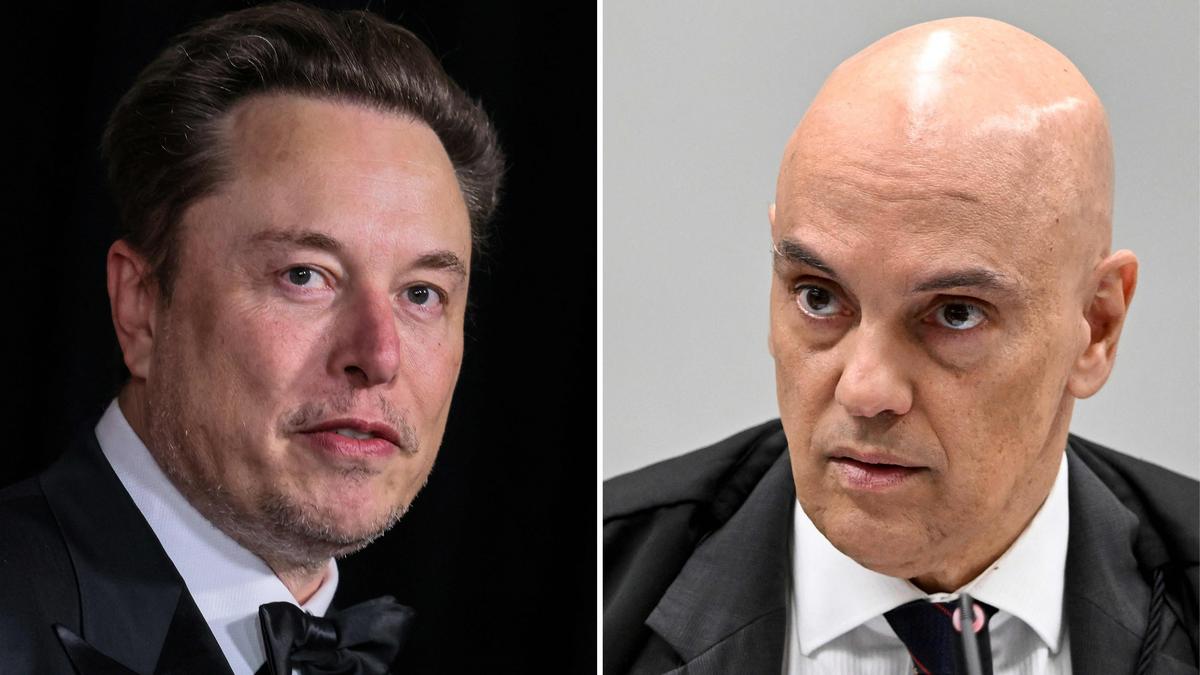Brazil’s decision to block Elon Musk’s social media platform X (formerly Twitter) in August 2024 marked a culmination of a months-long standoff between Musk and Brazilian Supreme Court Justice Alexandre de Moraes. The dispute, centered around issues of free speech, right-wing accounts, and misinformation, exposed a fundamental tension between online freedom and the potential for harmful content to spread.
The Dispute: A Clash of Ideologies
The conflict arose from Justice de Moraes’ concerns about X’s failure to moderate harmful content and its alleged bias toward far-right groups, particularly those linked to former Brazilian President Jair Bolsonaro. This tension stemmed from de Moraes’ broader efforts to combat misinformation and safeguard Brazilian democracy. He had repeatedly issued orders to X to take down specific accounts and content, accusing the platform of neglecting its responsibility to curtail harmful narratives and anti-democratic discourse.
However, Elon Musk, a self-proclaimed “free speech absolutist,” vehemently opposed de Moraes’ actions, arguing they amounted to censorship and a violation of the right to free expression. He dismissed de Moraes as a dictator and tyrant, further inflaming the situation.
The Point of Contention: Censorship vs. Responsibility
This dispute underscored a complex and ongoing debate about the balance between free speech and the need to curb online harms. De Moraes argued that X’s refusal to comply with Brazilian law, which mandates the presence of local representatives to address court orders and ensure compliance, created a dangerous vacuum that facilitated the spread of misinformation and potentially undermined democratic values.
Conversely, Musk’s staunch defense of unfettered free speech echoed the arguments of those who believe online platforms should not be subject to governmental restrictions and that any censorship undermines fundamental freedoms. He painted himself as a defender of free expression against a tyrannical judiciary.
Escalating Tensions and Blocking X
As the dispute escalated, de Moraes ordered X to be blocked in Brazil after Musk refused to appoint a local legal representative. He issued a daily fine of 50,000 reais (approximately $8,900) for individuals or companies circumventing the block using virtual private networks (VPNs).
The Fallout: Censorship, Freedom, and User Disruption
The blocking of X in Brazil triggered a wave of outrage among the platform’s users, raising questions about censorship, access to information, and the impact on user experience. X, particularly in Brazil, had faced dwindling advertising revenue after Musk’s acquisition in 2022, and this blockage added another significant hurdle for the platform.
Shifting Landscapes: Brazil’s Stand on Free Speech
This episode exposed a nuanced view of online freedom in Brazil. The nation has a history of grappling with balancing free speech with the need to protect democracy, particularly in light of political polarization and online manipulation. While some view de Moraes’ actions as a necessary step to protect democracy, others see them as excessive censorship.
Wider Implications: Global Concerns over Online Content
Beyond Brazil, this clash between Musk’s platform and a government seeking to regulate online content echoed broader global debates about content moderation, social media’s responsibility in shaping public discourse, and the role of national governments in managing digital spaces.
Examining Other Instances of Platform Banning
The blocking of X in Brazil is not unprecedented. Several countries, both authoritarian regimes and democracies, have temporarily or permanently banned X or other platforms, often citing concerns over national security, the spread of misinformation, or the incitement of unrest. These instances highlight the complex challenges in navigating the online sphere, where global reach can come into conflict with national regulations and cultural sensitivities.
Takeaway Points
The clash between Elon Musk and Brazilian authorities over the regulation of X in Brazil serves as a microcosm of broader global debates about the future of online spaces. This incident prompts reflection on several crucial points:
- Free Speech vs. Online Responsibility: This case highlights the tension between safeguarding free speech and tackling online harms. Balancing these competing interests remains a critical challenge in the digital age.
- The Power of Platforms: The actions taken by Brazil, though controversial, underline the significant power wielded by online platforms in shaping public discourse.
- The Need for International Collaboration: Navigating online content regulation necessitates international collaboration to find effective mechanisms for addressing misinformation, hate speech, and other threats while upholding fundamental rights.
- Evolving Digital Landscape: The ever-changing landscape of online communication necessitates a nuanced approach to governance that adapts to technological advancements while protecting essential values.
- The Importance of User Voice: The disruption caused by the blocking of X in Brazil reminds us of the impact of digital platforms on people’s lives and the need to involve users in discussions about content moderation and online policy.
The battle over X in Brazil serves as a cautionary tale, highlighting the complexities and challenges of governing online spaces in a world where platforms have become increasingly influential. Finding a path forward that respects both freedom of expression and the safety of online communities requires open dialogue, flexible frameworks, and a commitment to democratic principles.




